Clark County parents oppose changing opt-in sex ed policy
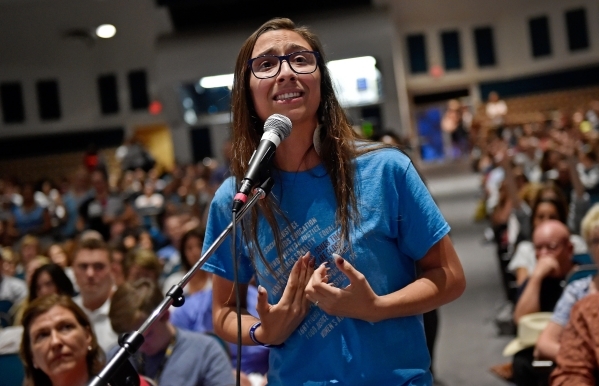

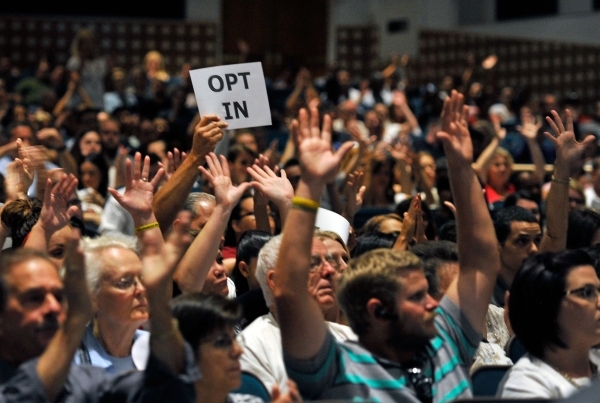
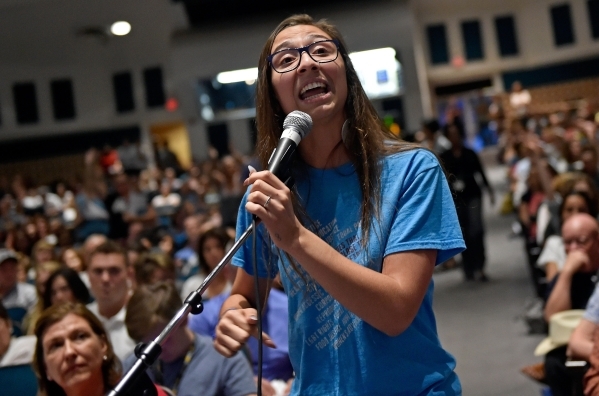

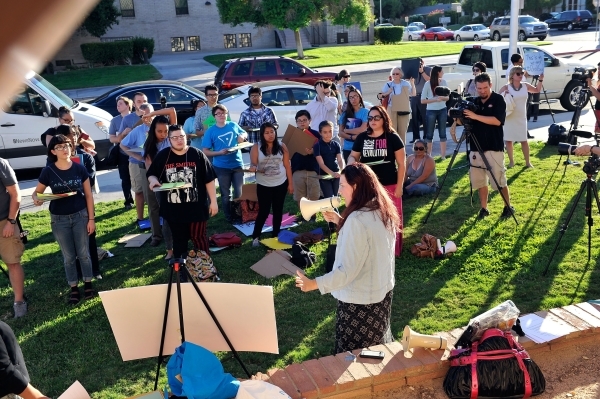



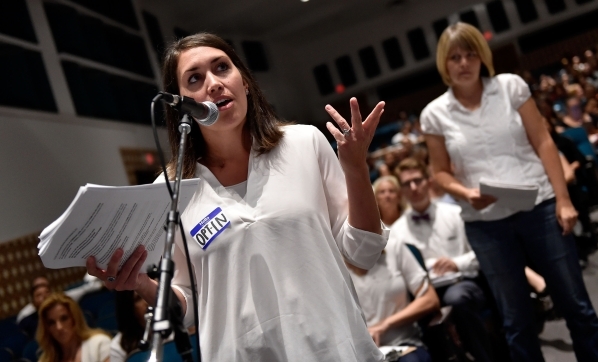
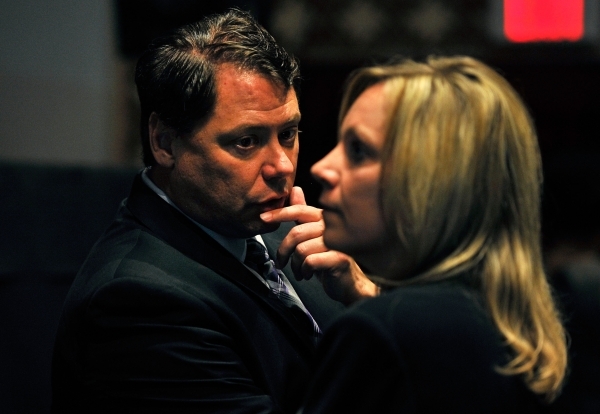
Parents who packed a Clark County School Board meeting late Tuesday overwhelmingly voiced their opposition to changing a policy that trustees can’t change.
The existing opt-in policy — a state mandate from the Nevada Legislature — requires parental consent before any public school student participates in sex education.
Local school boards only can lobby state lawmakers to change that policy to an opt-out approach that automatically enrolls students in sex education unless parents say otherwise.
Regardless, a wide majority of the parents who spoke at the Tuesday meeting urged Clark County School District officials not to take any position other than supporting the opt-in approach.
“No one loves my kids more than me and my wife,” said parent Brent Quist, who cited a protection for parental rights to “care for and control their kids.”
Other parents — and even some members of the board — referenced the Holocaust, cancer treatment and the assassination of Rev. Martin Luther King Jr. In defense of the current opt-in approach.
Some advocates also booed and hissed at a recent high school graduate and rape survivor who blamed her traumatic experience on the current sex education curriculum.
As the Tuesday meeting dragged into the fourth hour, the board had not yet moved on to other items they actually control, including what is taught at elementary school versus secondary school, whether to use only an abstinence-based curriculum and more.
“What comes to my mind when I think about the idea of opt-out is who benefits?” asked mother Michayle Hales. “It sounds like someone’s trying to separate me from my child.”
The town hall comes one year after a series of closed-door meetings to gather feedback on proposed changes to the existing sex education curriculum.
The public outcry convinced a majority of the board to reject even the idea of revisiting the controversial topic, angering District F Trustee Carolyn Edwards who has made modernizing sex education her top priority.
District E Trustee Patrice Tew, who serves as the board’s liaison to its sex education advisory committee, or SEAC, had stressed that delaying a conversation about sex education to September would allow more parents and community members to be involved in the process.
Late Tuesday night, after hours of public input, the board voted not to recommend that SEAC revisit the opt-in policy.
Only three states — Nevada, Mississippi and Utah — require parental consent before a student can participate in sex education, according to the National Conference of State Legislatures.
Advocates of an opt-out policy pointed to data from the U.S. Department of Health and Human Services that reports Nevada’s teen birth rate as 30.3 births per 1,000 females ages 15 to 19. That’s well above the national rate of 26.5 births per 1,000 females ages 15 to 19, though the state rate has plummeted 58 percent between 1991 and 2013.
“The proof is in the pudding,” said former Democratic Congressional candidate Erin Bilbray. “The fact that we are No. 7 (in the nation) when it comes to teenage pregnancy says that our system is not working.”
Contact Neal Morton at nmorton@reviewjournal.com or 702-383-0279. Find him on Twitter: @nealtmorton












